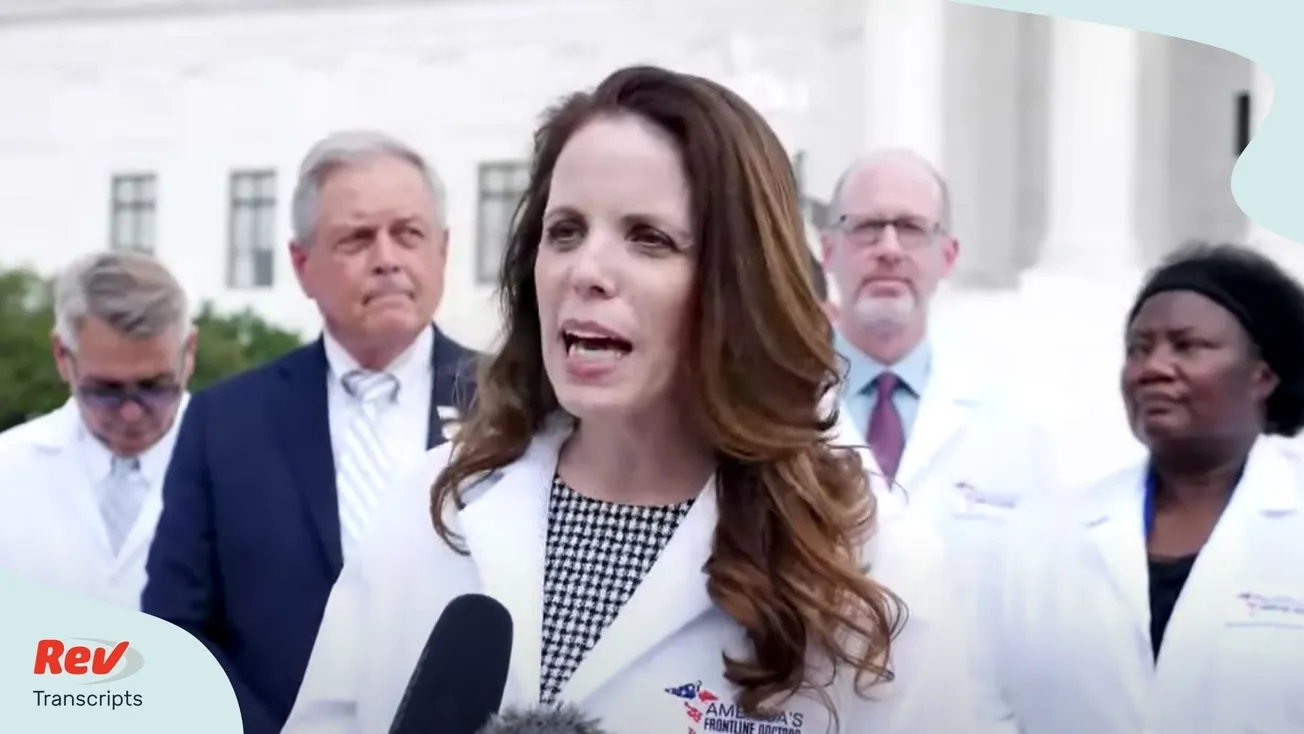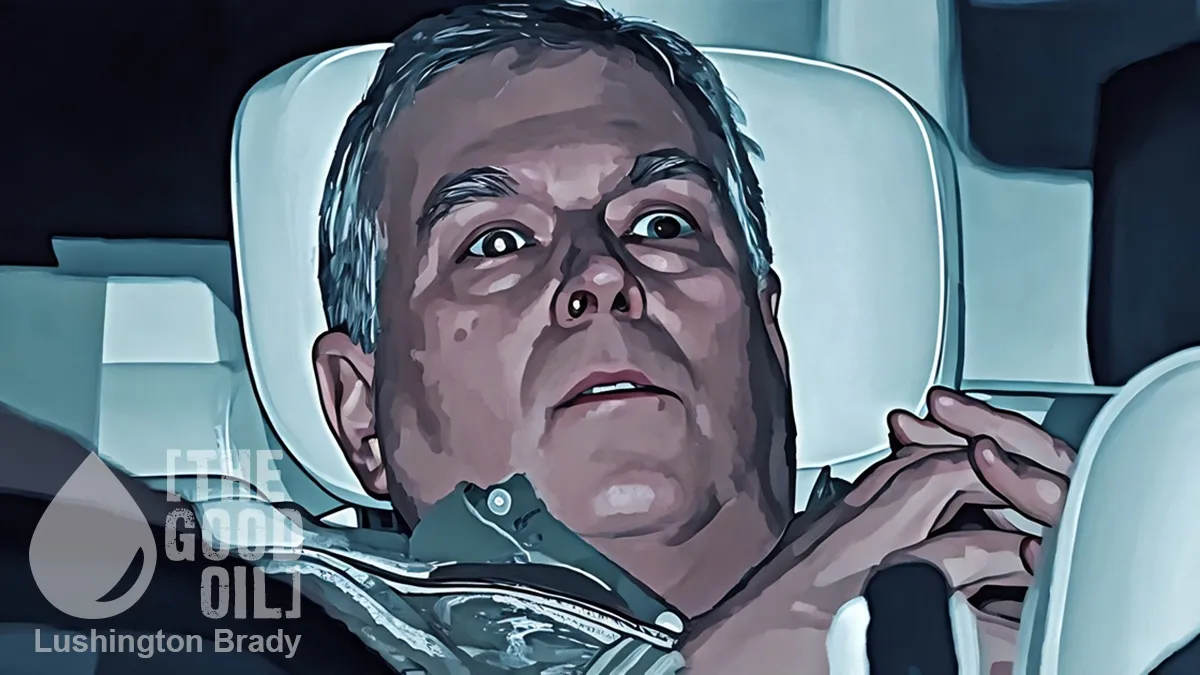Table of Contents
The full transcript is more than 8000 words in length so in order for our readers to have the opportunity to process all the information in bite-sized chunks The BFD is publishing the content over eight consecutive days.
Warning
This press conference has been flagged and taken down by multiple social media platforms for allegedly containing “misleading” or “false” information. The BFD is providing this information so that readers can make their own judgement call as Twitter, Facebook and Youtube have a history of silencing conservative voices and any information that runs contrary to an approved left-wing narrative.
A group of American doctors calling themselves “America’s Frontline Doctors” held a press conference on COVID-19, hydroxychloroquine, and more outside the Supreme Court of the United States. Part seven of the full transcript of their press conference is below.
Speaker 10: (32:00)
What did you say your name was?
Dr. James Todaro: (32:01)
I’m James Todaro.
Moderator: (32:02)
Give your website.
Dr. James Todaro: (32:05)
Most of my thoughts, I actually publish on Twitter. Twitter has been great lately. So, James Todaro, M D. T-O-D-A-R-O M-D but I also have a website medicineuncensored.com, which contains kind of a lot of the information about hydroxychloroquine I think is much more objective than what’s going on in other media channels.
Speaker 10: (32:28)
One point, in terms of Twitter. That’s important because as I understand not only from doctors, but from other people in the media, that YouTube has blocked information specifically about hydroxychloroquine.
Dr. James Todaro: (32:42)
I’ll go ahead and address that real quickly. I would say Facebook and YouTube have taken the most draconian measures to silence and censor people. And this is coming from the CEO of YouTube, as well as Mark Zuckerberg saying anything that goes against what the World Health Organization has said is subject to censorship. And we all know the World Health Organization has made a number of mistakes during this pandemic. They have not been perfect by any means. Twitter, although they have some flaws and faults and flag certain content and stuff, they really still remain one of the freest platforms to share dialogue, intelligent discussion regarding this information. And many of us here today actually connected on social platform mediums like that.
Speaker 11: (33:21)
Could you talk about what you mentioned earlier about the medication and how long it’s been around?
Dr. Joe Ladapo: (33:27)
Sure thing. I’m Dr. Joe. Ladapo. I’m a physician at UCLA and I’m a clinical researcher also. And I’m speaking for myself and not on behalf of UCLA. So I want to say that I’m thinking of the people who are behind the screens that are watching what you guys were broadcasting. And I want to share with you because there’s so much controversy and the atmosphere is so full of conflict right now that what this group of doctors is trying to do fundamentally, is really to bring more light to this conversation about how we manage COVID-19 and the huge challenge. And that’s what this is ultimately about. And bringing light to something means thinking more about trade-offs, about one of my colleagues said on unintended consequences. And I actually think that’s not even the right word, the right word is unanticipated consequences. Really thinking about the implications of the decisions we’re making in this really, really extraordinary time that we’re in.
Dr. Joe Ladapo: (34:45)
So, I’m sure people are listening to some of the discussion about hydroxychloroquine and wondering, what are these doctors talking about? And, these are doctors that take care of patients, board certified, med school, great med schools, all of that. How could they possibly be saying this? I watch CNN and NBC, and they don’t say anything about this. And that’s actually, that’s the point. There are issues that are moral issues, that really there should be a singular voice. So for me, issues related to whether people are treated differently based on their sex or race, or their sexual orientation. I personally think those are moral issues and there’s only one position on those. But COVID-19 is not a moral issue. COVID-19 is a challenging, complex issue that we benefit from having multiple perspectives on. So it’s not good for the American people when everyone is hearing one perspective on the main stations. There’s no way that’s going to service. So, the perspective most people have been hearing is that hydroxychloroquine doesn’t work. That’s the perspective that most people have been hearing on the mainstream television.
Dr. Joe Ladapo: (36:03)
That’s the perspective that most people have been hearing on the mainstream television, and I believed that perspective too, until I started talking to doctors who would look more closely than some of the physicians behind me here, who would look more closely at the data and at the studies.
Dr. Joe Ladapo: (36:17)
So it is a fact that several randomized trials have come out so far, that’s our highest level of evidence, and have shown that hydroxychloroquine… Their findings have generally been that there’s no significant effect on health benefit. So, that’s a fact, that the randomized control trials have come out… So far that have come out. In fact, there were two or three big ones that came out over the last two weeks, [inaudible 00:36:44] Internal Medicine, New England Journal of Medicine, and I think one other journal.
Dr. Joe Ladapo: (36:49)
It is also a fact that there have been several observational studies. These are just not randomized controlled trials, but patients who are getting treated with this medication that have found that hydroxychloroquine improves outcomes. So both of those things are true. There’s evidence against it and there’s evidence for it.
It is also a fact that we are in an extraordinarily challenging time. Given those considerations, how can the right answer be to limit a physician’s use of the medication? That can’t possibly be the right answer. And when you consider that this medication before COVID-19 had been used for decades, by patients with rheumatoid arthritis, by patients with lupus, by patients with other conditions, by patients who were travelling to West Africa and needed malaria prophylaxis, we’ve been using it for a long time, but all of a sudden it’s elevated to this area of looking like some poisonous drug. That just doesn’t make sense.
Dr. Joe Ladapo: (37:59)
Then when you add onto that the fact that we’ve had two of the biggest journals in the world, New England Journal of Medicine, and Lancet, as my colleagues say, retract studies that found, interestingly, that hydroxychloroquine harmed patients. Both of these studies. They had to retract these studies, which really is unheard of. That should raise everyone’s concern about what is going on.
At the very least, we can live in a world where there are differences of opinion about the effectiveness of hydroxychloroquine, but still, allow more data to come, still allow physicians who feel like they have expertise with it use that medication, and still talk, and learn, and get better at helping people with COVID-19.
Dr. Joe Ladapo: (38:50)
So why we’re not there is not good. It doesn’t make sense, and we need to get out of there.








